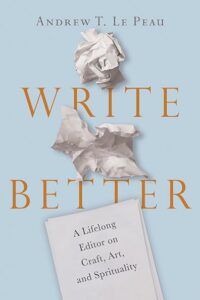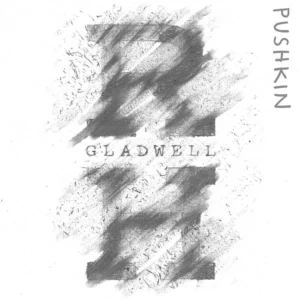In Write Better I critiqued the opening of Malcolm Gladwell’s bestseller, Blink, a book on intuition. Although ultimately the book raises serious questions about snap judgments, the subtitle (The Power of Thinking Without Thinking) and its compelling opening story make us think the book is entirely positive about our hunches.
 I found this problematic and said so. When my son Dave read Write Better, he wrote to me to say he thought my critique of Blink was convincing. He concluded with this:
I found this problematic and said so. When my son Dave read Write Better, he wrote to me to say he thought my critique of Blink was convincing. He concluded with this:
Andy Le Peau: 1
Malcolm Gladwell: 5 million copies sold
(Leave it to our children to keep us humble!)
I’m still a fan of Gladwell who is a skilled and insightful journalist. I was therefore interested to hear on a recent episode of his podcast, Revisionist History, that many people were confused about Blink. Gladwell said:
Nor does it surprise me now after thirty years of writing books that people don’t read or listen to the end. . . . My second book Blink was a book that looked critically at, when I say critically, examined both the pros and cons of snap judgments. But you had to keep reading. It started out on the pros and then as I dug deeper, got interested in the cons. The number of people who either supported or loved that book or hated that book because they perceived it as being a book about celebrating snap judgments was limitless. Any time you tell a story with a twist, you’re going to leave some people along the way.
So was I wrong? I don’t think so. Gladwell didn’t address how the subtitle misdirected people. In addition, as I recall, he doesn’t make the point about pros and cons in the book as clearly as he did in the above quote. He doesn’t make it explicit to readers that he starts with one notion and moves to another. He fails to offer necessary signals that there is “a twist,” that things are moving in a different direction than he first thought. Without that, readers will draw the wrong conclusions, and as he says, they did.
It’s ok to write a nonfiction book beginning with one premise and slowly moving away from that to a different conclusion. But if we do, we need to plainly tell readers that is what is happening. We could write: “Here are the pros I found,” and later, “But I also found some cons.”
 We could say something like, “But then I began to find evidence that contradicted my initial ideas.” Or, “I was stunned! Could I have been wrong about how beneficial intuition is?”
We could say something like, “But then I began to find evidence that contradicted my initial ideas.” Or, “I was stunned! Could I have been wrong about how beneficial intuition is?”
Or this: “Although this opening story seemed to confirm the universal value of snap judgments, as I pursued the topic I began to question this idea. This book is about how I changed my mind.”
Probably all of these (or ones like them) should be used because in the course of a couple hundred pages, we need to keep reminding readers of where we have been, where we are, and where we are going.
Reading is hard work. When writing nonfiction, we need to be sympathetic to that. Our job is to keep readers with us. If they don’t, we shouldn’t immediately blame them. We might look at how we could have done a better job.
—
*Malcolm Gladwell in “The Bear Was Poked,” November 1, 2023, about minute 10:00 to 10:45, www.pushkin.fm/podcasts/revisionist-history/the-bear-was-poked-with-maria-konnikova.
